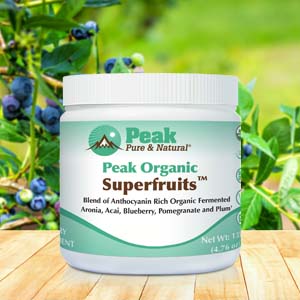Get Easy Health Digest™ in your inbox and don’t miss a thing when you subscribe today. Plus, get the free bonus report, Mother Nature’s Tips, Tricks and Remedies for Cholesterol, Blood Pressure & Blood Sugar as my way of saying welcome to the community!
15 risk factors for young-onset dementia

Common wisdom has been that dementia before the age of 65 is due to genetic factors that we can’t do much about.
But if you’re familiar with epigenetics, then you know genes don’t always have the final say.
Epigenetics is the study of the mechanisms that control the activity of our genes — and how our behaviors and environment can affect how our genes work.
Unlike genetic changes, epigenetic changes are reversible and do not change your DNA sequence. But they can change how your body reads a DNA sequence.
That means your actions, including lifestyle practices, may give a gene the nudge it needs to do its dirty work — or keep it from activating altogether.
That’s why a group of British and Dutch scientists got to work to see if they could identify factors that could reduce the risk of young-onset dementia…
15 factors associated with young-onset dementia
“This is the largest and most robust study of its kind ever conducted,” says Professor David Llewellyn of the University of Exeter.
“Excitingly, for the first time it reveals that we may be able to take action to reduce risk of this debilitating condition, through targeting a range of different factors.”
He and colleagues followed more than 350,000 participants from the UK Biobank study. During an average follow-up period of eight years, 485 people were diagnosed with “young-onset” dementia (YOD), or cases caught in people under 65.
The team identified 15 different lifestyle and health factors that, while not named as causes of YOD, are associated with an increased risk of developing the condition.
A few were genetic, but fortunately, most are modifiable factors, that include:
- Lower formal education
- Lower socioeconomic status
- Two copies of the APOE4 gene
- Alcohol use disorder
- Social isolation
- Vitamin D deficiency
- High C-reactive protein levels
- Lower handgrip strength
- No alcohol use
- Hearing impairment
- Diabetes
- Heart disease
- Depression
- Orthostatic hypotension (when blood pressure drops after standing up after sitting or lying down)
- Stroke
A great place to start
“Staying healthy is most important to the brain, and unhealthy choices often show up first in the brain,” says Dr. Andrew Budson, a neurology professor at Boston University who was not involved in the study.
Did you know that what’s good for heart health is good for brain health?
Research over the past decade has confirmed the intimate connection between our brains and our hearts, and how caring for one means caring for the other.
Aerobic exercise and the DASH diet have shown to be a formidable duo for heart and brain health.
The DASH diet also helps tackle metabolic syndrome, which can lead to diabetes and increased stroke risk. So by exercising and following the DASH diet, you can strike off several of the YOD risk factors near the bottom of the list.
Next, you’ll want to spend more time with friends, avoid drinking alcohol and supplement vitamin D3 — especially since low levels are tied to dementia.
Genes or no genes, this sounds like a great start to keep dementia at bay.
Editor’s note: There are perfectly safe and natural ways to decrease your risk of blood clots including the 25-cent vitamin, the nutrient that acts as a natural blood thinner and the powerful herb that helps clear plaque. To discover these and other secrets of long-lived hearts, click here for Hushed Up Natural Heart Cures and Common Misconceptions of Popular Heart Treatments!
Sources:
Major Study Identifies 15 Factors Linked to Early Dementia Risk — Science Alert
Risk Factors for Young-Onset Dementia in the UK Biobank — JAMA Neurology
15 Risk Factors Identified For Early-Onset Dementia — Everyday Health
Risk of young-onset dementia could be reduced through targeting health and lifestyle factors — University of Exeter













